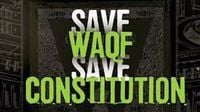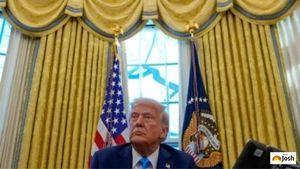On September 30, 2025, the Supreme Court of India issued an interim order that has already begun to shape the country’s debate over religious freedom, property rights, and the boundaries of state power. The order stays a contentious provision in the Waqf Amendment Act that would require individuals to demonstrate five years of practicing Islam before they can create a waqf—a charitable endowment under Islamic law. While this stay offers temporary relief to those affected by the provision, it has also unleashed a wave of constitutional questions and public protest that are now reverberating across India.
At the heart of the controversy is Section 3(r) of the amended Waqf Act. This provision introduces a temporal requirement: only those who can prove five years of demonstrable Islamic practice may create a waqf. According to reporting by The Hindu, the legislative intent behind this change appears to be the prevention of fraudulent conversions and misuse of waqf law to evade other legal obligations. However, critics argue that the implications of this requirement extend far beyond its immediate application, raising fundamental concerns about the state’s role in adjudicating religious authenticity.
As Professor Faizan Mustafa has observed, the right to own and dispose of property is a principle of general jurisprudence, not a privilege conferred by religious law. When the state ties the ability to create a waqf to a person’s religious credentials, it effectively conditions property rights on religious conformity—a move that has left many legal scholars and activists deeply uneasy. The interim order, while offering a stay, does not resolve these tensions; instead, it draws attention to the uncomfortable intersection of personal faith and property rights in contemporary India.
One of the more peculiar aspects of the amended Act, as highlighted by The Indian Express, is its exclusion of non-Muslims from creating waqfs, even as it allows them to serve on Waqf Boards and the Central Waqf Council. This odd arrangement means that non-Muslims can oversee and manage waqf properties but are prohibited from creating new ones. Historical precedents exist for non-Muslim contributions to Islamic endowments, making this exclusion all the more puzzling. The logic, if any, behind this distinction seems to border on a bizarre form of inclusivity—allowing oversight but not participation in creation.
The Supreme Court’s interim order references its own reasoning in the landmark KS Puttaswamy v. Union of India judgment, which affirmed that religious belief and practice fall within the protected sphere of privacy. The Puttaswamy decision recognized that Article 25 of the Constitution guarantees not only the freedom to choose one’s faith but also “the freedom to express or not express those choices to the world.” In other words, religious belief is understood as a deeply personal matter, one that operates “within the zone of purely private thought process” and is essential to human liberty.
By demanding evidence of religious practice, the Waqf Amendment Act arguably forces individuals to externalize what the Constitution protects as inherently private. As the Court noted in Puttaswamy, “privacy is essential to the exercise of freedom of conscience and the right to profess, practise and propagate religion.” The new requirement, however, turns this principle on its head, transforming religious practice into a matter for state verification rather than personal conviction.
The implications are not merely theoretical. As Scroll.in points out, the requirement places the state in the awkward position of adjudicating religious sincerity. Would a Muslim who prays irregularly, engages in business involving interest, or fails to observe every religious obligation be deemed insufficiently “practicing” for the purposes of waqf creation? Such determinations would necessitate the development of official criteria for measuring religious devotion—a prospect that seems fundamentally at odds with the constitutional commitment to treating all religions equally.
In its interim order, the Supreme Court invoked the need to prevent “clever devices” to evade legal obligations. While this concern is not without merit, critics argue that the remedy—state verification of religious practice—is disproportionate to the problem. The Court’s approach, which stays the provision until procedural rules can be framed, reflects what some see as a worrying trend in contemporary jurisprudence: treating constitutional violations as primarily procedural rather than substantive issues. The deeper question, as legal analyst Shrestha Srivastava writes, is not whether the state can create fair procedures for verifying religious practice, but whether such verification should be permitted at all.
This debate is not confined to the courts. On October 1, 2025, the All India Muslim Personal Law Board (AIMPLB) announced a nationwide bandh for October 3 as part of the second phase of its ‘Save Waqf, Save Constitution Campaign’. According to The Siasat Daily, the AIMPLB called on Muslims and members of other communities to support the bandh by closing their shops and businesses from 8 am to 2 pm. The decision was made at a consultative meeting chaired by Maulana Khalid Saifullah Rahmani, president of the AIMPLB, and included representatives from various organizations and groups. The campaign’s stated goal is to protect waqf properties and urge the government to allow Muslims to protest peacefully against the Waqf Act 2025.
The Board has encouraged the display of protest posters and asked for solidarity from all communities, emphasizing the need for collective national action to protect waqf properties. As the bandh approaches, the campaign has gained traction, with many viewing it as a critical moment in the ongoing struggle to define the contours of religious freedom and minority rights in India.
Underlying these legal and political battles is the unique nature of waqf itself. As Srivastava notes, a waqf is not simply a trust or a charitable donation; it is a distinct religious institution characterized by perpetuity and the notion of divine ownership. The suggestion that affected individuals could simply create secular trusts or make donations in other ways misses the point. For many, the waqf represents a particular form of religious expression that cannot be replicated through other legal mechanisms.
Ultimately, the Supreme Court’s final judgment will need to grapple more directly with the fundamental constitutional questions raised by the amended Act. How can the state balance its legitimate interest in preventing fraud with the imperative to protect religious freedom and privacy? Is it constitutionally permissible for the state to verify religious sincerity, or does such an inquiry undermine the very freedoms the Constitution seeks to protect? These are not easy questions, and the answers will likely shape the future of religious freedom, property rights, and state neutrality in India for years to come.
As the nation prepares for the October 3 bandh and awaits the Supreme Court’s final word, one thing is clear: the debate over waqf, religious freedom, and the role of the state is far from over. The stakes are high, and the outcome will reverberate well beyond the confines of waqf law, touching on the very meaning of constitutional democracy in India.




